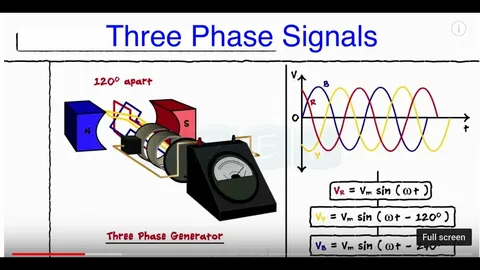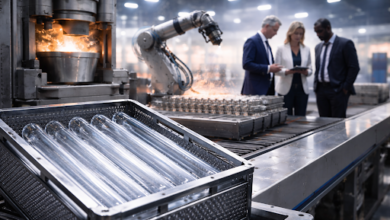Knowledge of Three-Phase Generators

Three-phase generators are main power sources that find extensive application in industrial, commercial, and residential large-scale usage. Unlike single-phase generators, which supply power through one alternating current (AC) waveform, three-phase generators supply electricity through three AC waveforms. These waveforms are equally phased at 120-degree intervals, supplying a smoother and more regulated supply of electricity. This constant flow of power renders three-phase generators the preferred source of power for heavy-duty equipment, motors, and systems that require a constant load.
Three-phase power is easily available in commercial locations in the UK, and many businesses choose to have a three-phase generator installed as an alternative or backup power supply. On a factory floor, hospital, data centre, or building site, these generators are a necessity for maintaining operations during power failures or off-grid situations.
Advantages and Applications
One of the main advantages of a three-phase generator is that it is highly efficient. As power supply is divided among three wires, there is less energy loss during the transmission process. This also means that cables and electrical parts do not become as hot as quickly, wear less, and offer greater safety. These generators can handle larger loads with greater efficiency, which is ideal for powering multiple machines or heavy-duty machines at once.
In practice, this means that companies can utilize welders, compressors, HVAC equipment, and manufacturing equipment without worrying about voltage drops or frequent shutdowns. In agriculture, three-phase generators power irrigation pumps, grain dryers, and other essential equipment. Emergency services and health centers depend on them for uninterrupted power supply, keeping critical equipment running even when the grid fails.
Even for the larger UK residential buildings, such as where there are swimming pools, electric gates, or underfloor heating systems installed, a three-phase generator might be necessary to supply power needs.
Choosing the proper generator
Picking a three-phase generator is more a matter of looking at a few key things, like the general power requirement, application, and whether it will be a main or redundant source. Fuel type is something worth keeping in mind too – diesel generators are the general go-to for three-phase units because they are durable and cheaper to operate over the long term.
Noise levels are an issue where there is a lot of traffic. Where this is the case, the majority of them opt for quiet or enclosed three-phase generators that boast soundproofing with no attendant loss in power. In addition, newer machines have added features such as automatic starting with power outages, remote monitoring options, and digital control panels that all help with ease of use and maintenance.
Installation and maintenance must always be done by qualified professionals to ensure compliance with UK safety regulations and avoid any possibility of malfunction or damage. Periodic checks, including battery testing, oil servicing, and wiring and connections checking, must be done to maintain the generator in good working condition and ready for use whenever needed.
In the UK, there are emission controls and noise regulations for larger generators, especially in urban environments. The majority of new three-phase generators are EU Stage V emissions compliant, making them even more environmentally friendly.
Three-phase generators are durable, efficient, and reliable solutions for all types of energy needs. Their ability to deliver constant power supply for long periods makes them inevitable in commercial as well as industrial applications. Whether you are preparing for an eventual loss of power or seeking a steady source of power to run heavy machinery, a three-phase generator has the performance and stability required. Given proper maintenance and careful choice, it can become an extended long-term investment that will help provide for continuity and productivity of any operation. Contact us to learn more information on generators.



